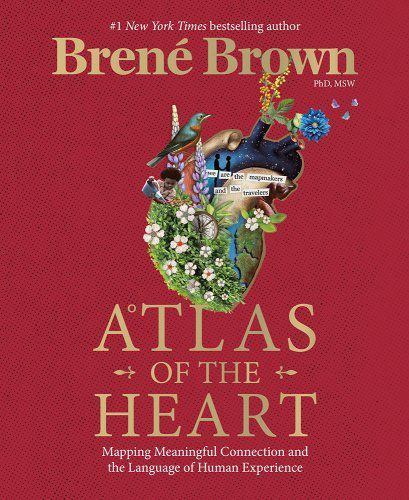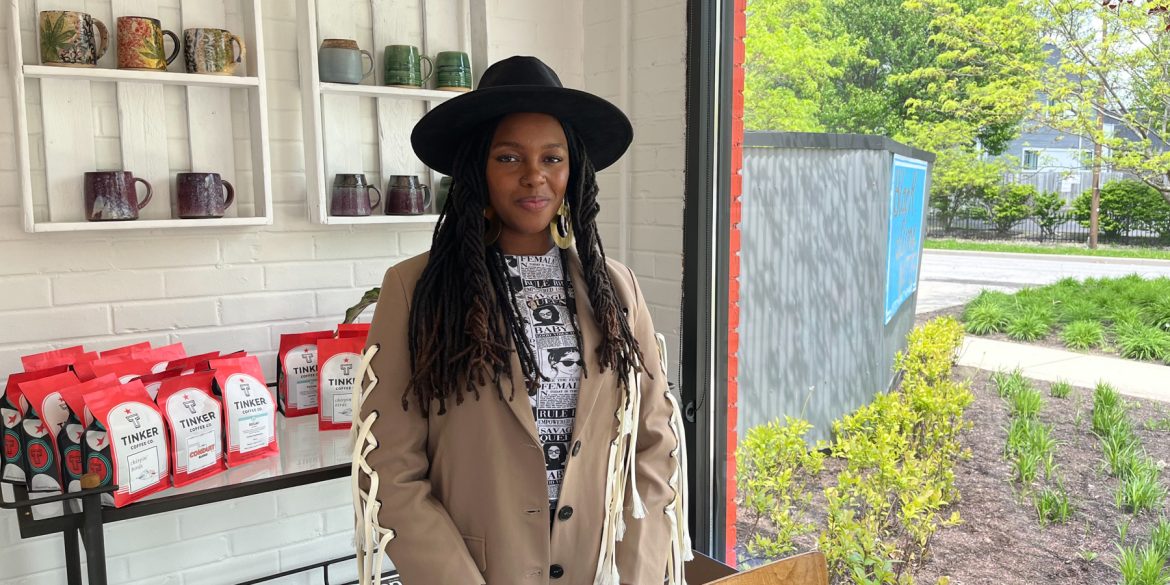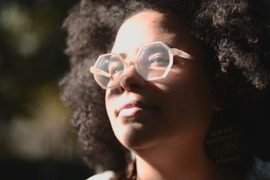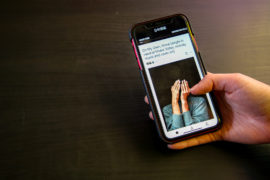For May PATTERN Reads we talked with Indianapolis writer Chantel Massey about some of her favorite books. Massey is a storyteller, poet, author, teaching artist, organizer, educator, and practicing Afrofuturist. Her work advocates for wellness, human rights, and social justice. Massey is a force in the writing community here in Indy and has a light about her that makes you feel hopeful–like you can heal all your wounds and live a life in peace. Buy her book, Bursting at the Seams: A Collection of Poetry and follow her on Instagram.
Check out the list below to see what Massey has been reading.
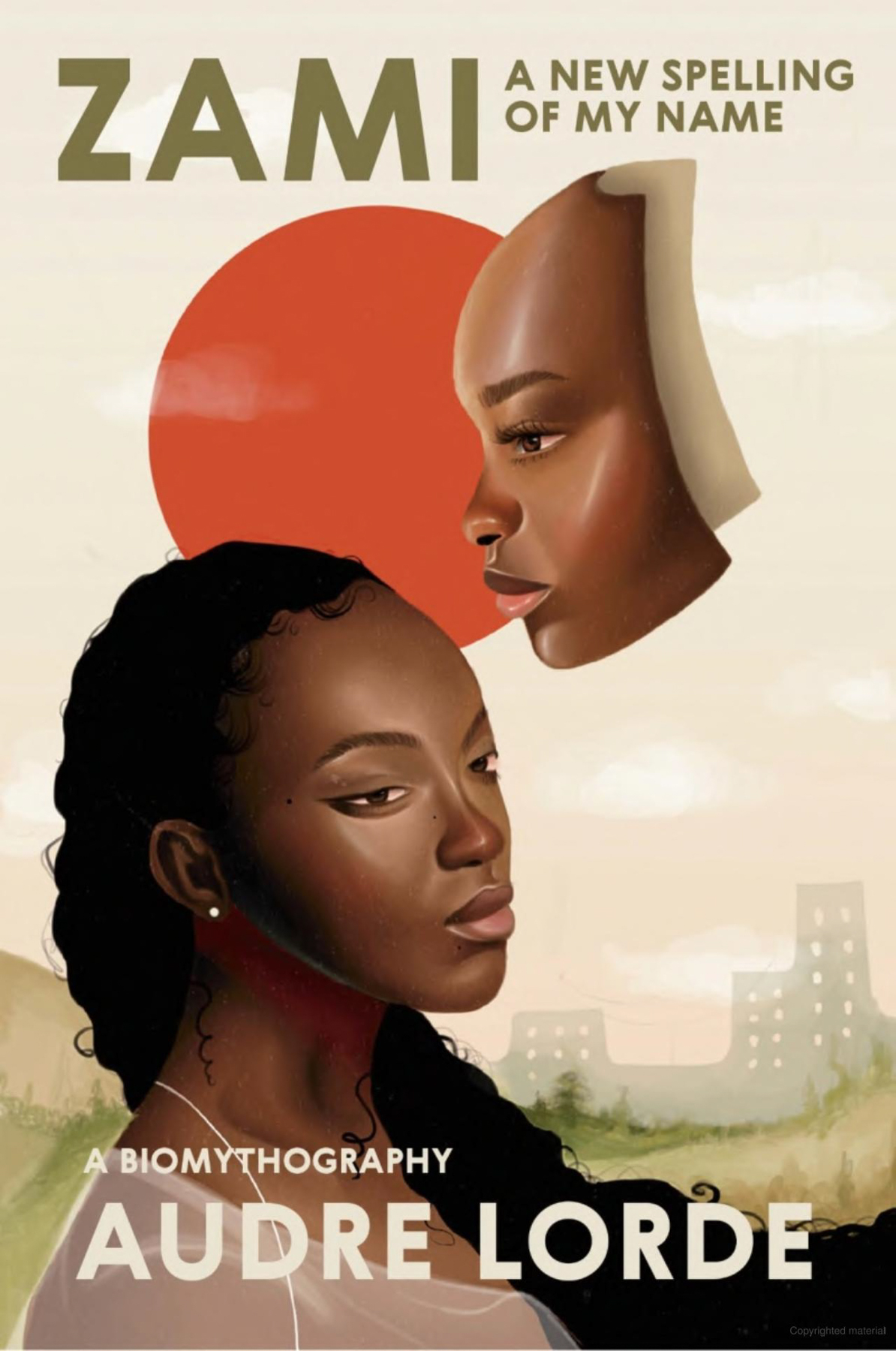
Zami: A New Spelling of My Name
Audre Lorde
These are the main two books that I read during the pandemic. Not main, but they’re the first two that really got me back into the spirit of writing and creating and processing the fact that we were in a pandemic. Zami by Audre Lorde, which is basically her autobiography. Zami is reclaiming her name for herself. She takes over telling her own story and giving her background thoughts about a lot of things that happened during her early childhood and adult years. It’s called a biomythography – a genre which she created. It’s really cool. To read Audre Lorde’s understanding and reclaiming of her life, her name… I felt, was really helpful for me to do that for myself.
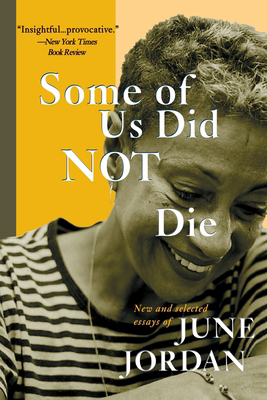
Some of Us Did Not Die
June Jordan
The other book was Some of Us Did Not Die by June Jordan. I really love this book because she’s a poet, but she’s also an essayist and a teacher who talks about things like war; she talked about surviving sexism, racism, and all of these other things. She’s also the daughter of immigrant parents which guides a lot of her writing and critical analysis of a lot of her experiences which I found weren’t too different from my own even though I am from Indiana with African – American parents. She talks about how other things happening in other parts of the world impact us here, and vice versa, and why it’s important to be involved in worldly matters. The essay that really stood out to me was called “Many Rivers to Cross” where she wrote about her mother. She said she didn’t realize her mother basically worked herself to death, until it was too late.
Essentially she said she thinks she killed herself because she worked herself to death trying to do everything to make other people happy. I was moved by her promise to make an effort, after finding her mother and realizing she had a terrible relationship with her dad, to help the women around her who are still in her life. He wasn’t very supportive during her mother’s transition. In this powerful essay she talks about how she would do the work from here on out to make sure that women in her life don’t have to feel like they’re doing it all by themselves. I thought that was so interesting to think about especially while in a pandemic because I was going through a lot of transitions–job, family, all the things everybody else is going through–and I’m trying to figure out what does this mean for me? How can I better show up for my community? What does it mean for me as an artist, as a poet, as a writer?
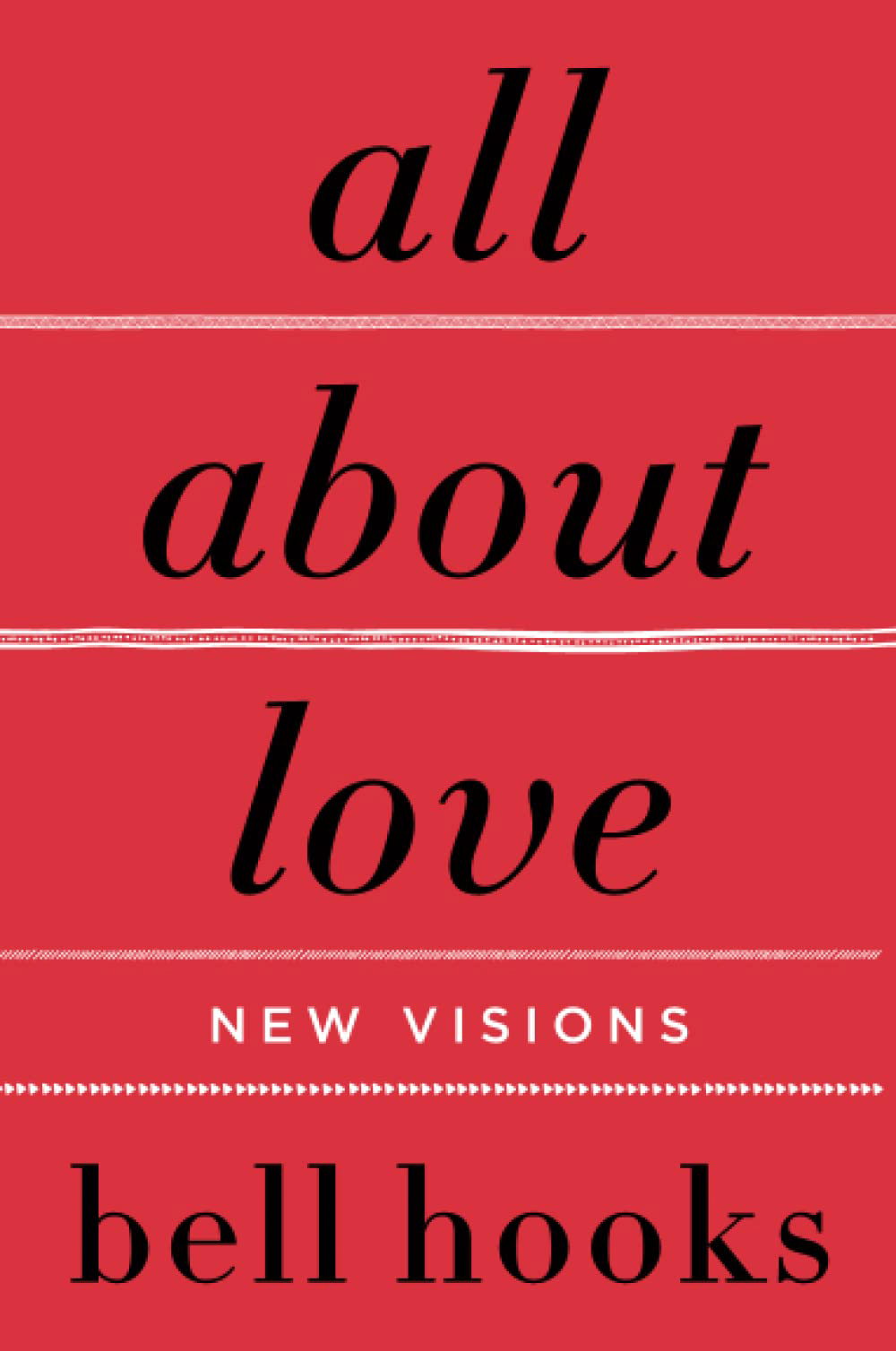
All About Love
bell hooks
All About Love by bell hooks is a really great book. She just talks about love the whole book. It’s really cool. She talks about love in all it’s capacities–familial, romantic, self, friendships, workplace–the whole thing. It’s a very revolutionary approach to love. I love that she went into detail about how her parents are people. You forget that your mom was a person before she was a mom; talking about the process of understanding what that love really is in that familiar relationship, I just thought that was cool. What did my parents understand about love? How did they teach me about relationships? Or what are they teaching me about how I take care of myself? Did they even do self care? She poses all of that–the whole question.
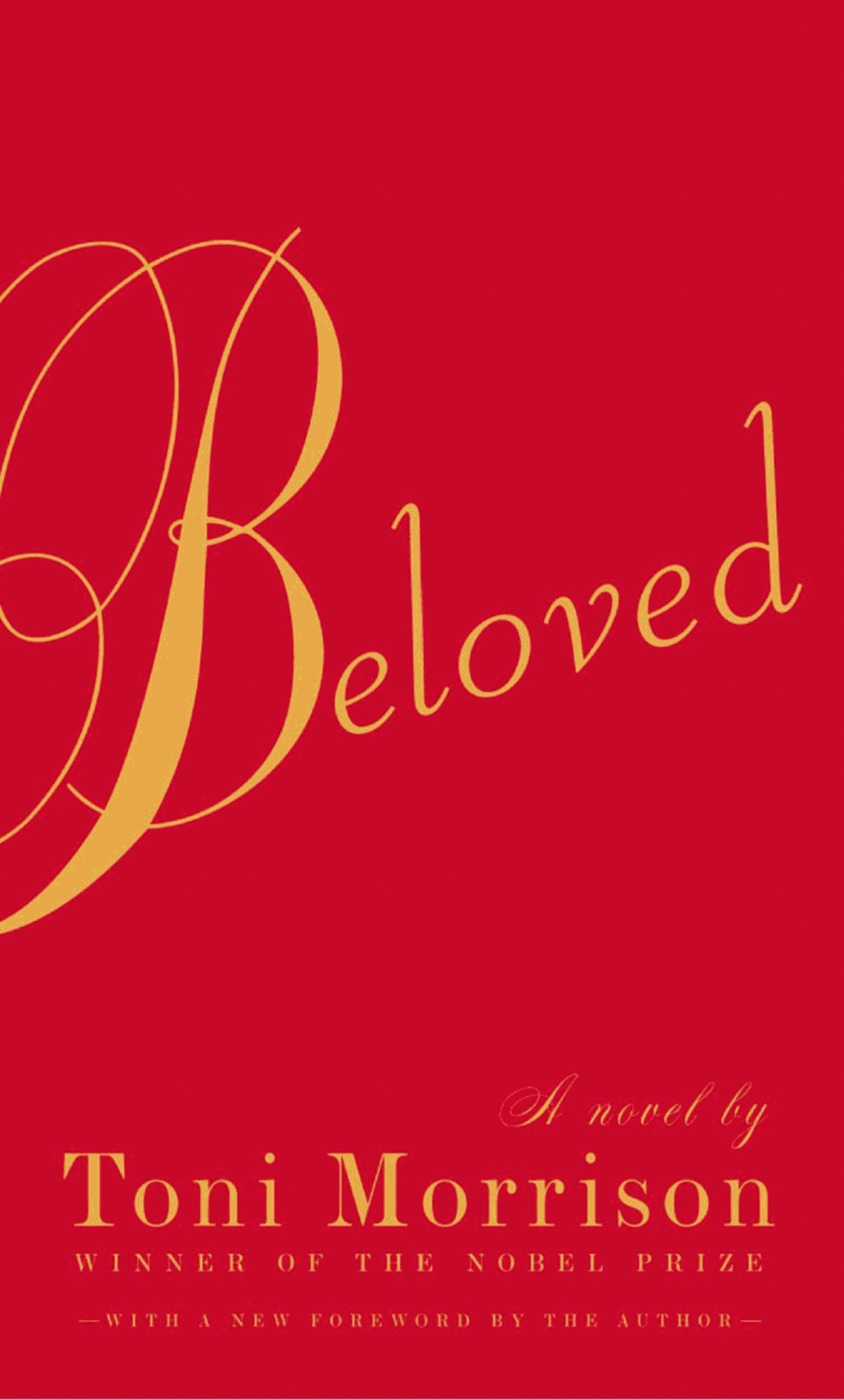
Beloved
Toni Morrison
Another book that I love is Beloved by Toni Morrison. It’s one of my favorites. That book really blew my mind in creativity and approaching history. I also enjoy the fact that people don’t know whether to call it horror or if it’s just a regular novel. I’m like hm, that’s interesting… I never thought of this. I can see how people can see this as a horror novel because there’s ghosts and all kinds of tragedy.
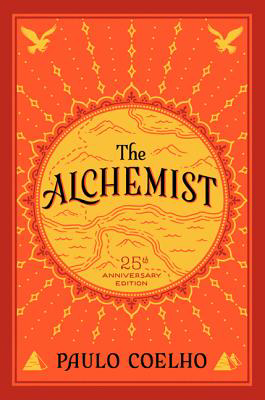
The Alchemist
Paulo Coelho
The other book that I have is called The Alchemist by Paulo Coelho. I love that book. That’s my favorite book when I feel uninspired and I need to get reinvigorated. I read it in my 20s. I wish somebody would have introduced it to me at a younger age. I thought it was really cool. Has anybody else said that book? [Laughs] It’s a reminder that your life has purpose and to always remember to be grateful. Everything you need (to be whatever your heart desires), you already have. I feel like that concept changed my life.
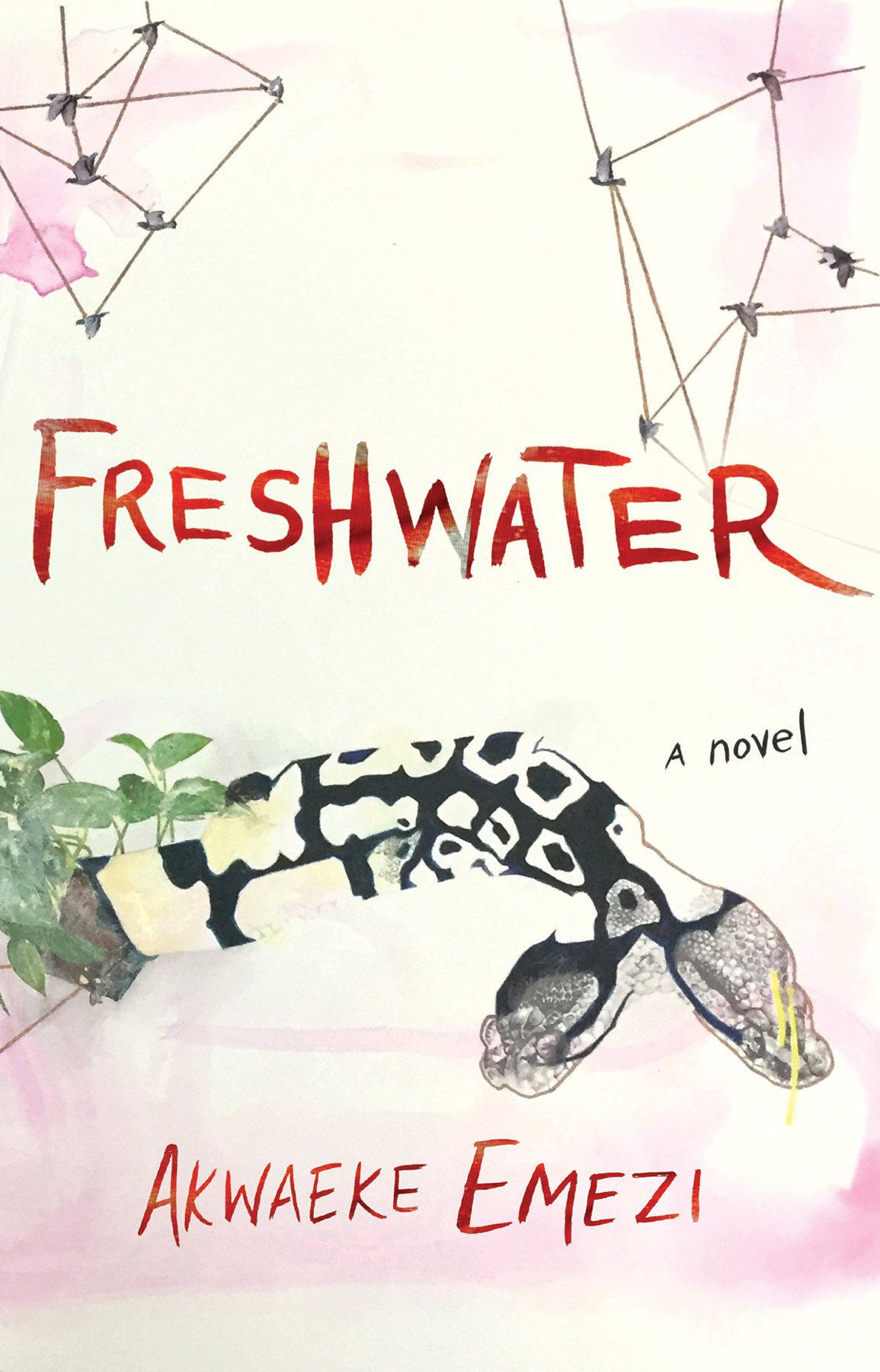
Freshwater
Akwaeke Emezi
Then I have Freshwater by Akwaeke Emezi. It’s a book about a character with schizophrenia. It is by a nonbinary writer. I want to say this person is almost a modern day–or at least I’ve heard people say this comparison–this writer is almost modern day Toni Morrison. Possibly because they were her student, but they definitely take Morrison’s approach in storytelling by having multiple voices and perspectives tell the story. You are for sure on a journey [while reading]. Freshwater is unlike anything you’ve ever read before, it’s poetic, a great read. As a writer or if you just need a new way to approach different perspectives it is a really cool story. Most of their books are just interesting. You can’t put it down. I can’t put them in a particular box. The way they approach telling the nonbinary experience is a very interesting way to help people understand who are probably very resistant to that experience.
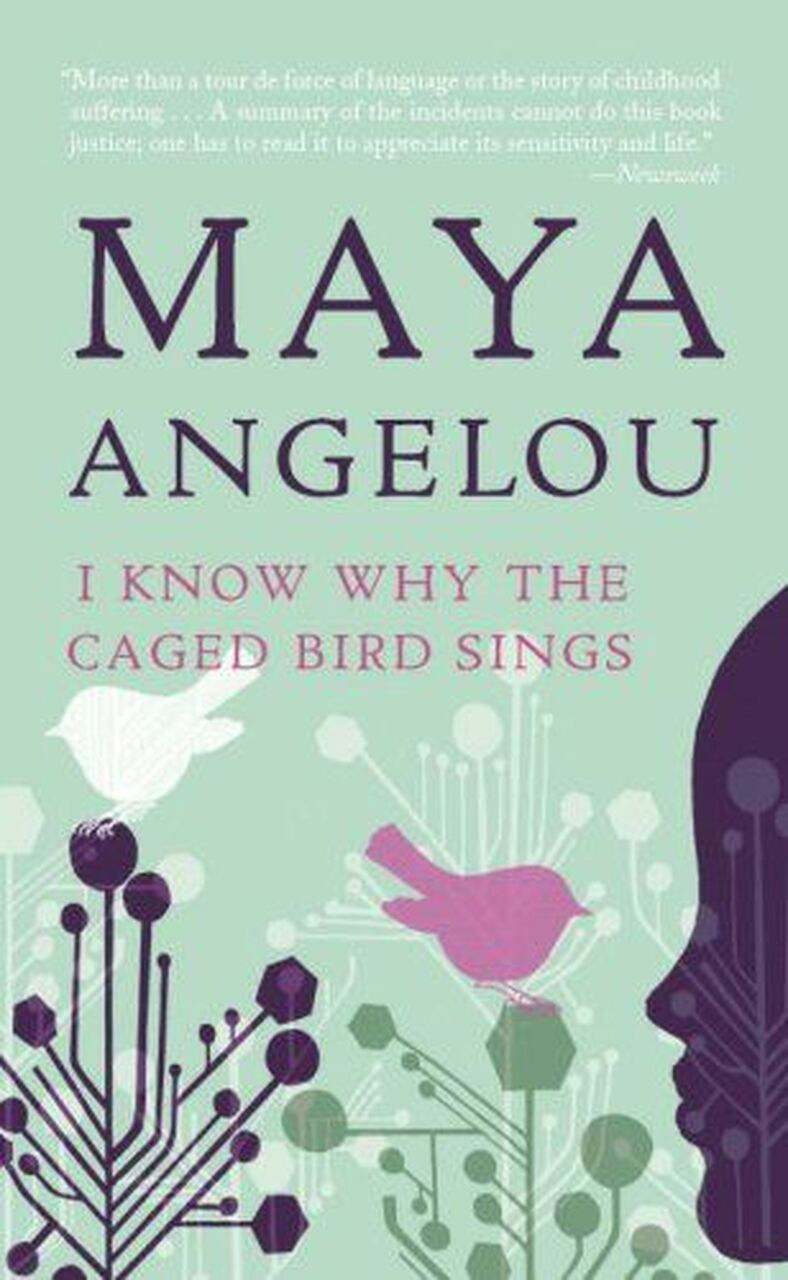
I Know Why the Caged Bird Sings
Maya Angelou
Next is I Know Why the Caged Bird Sings by Maya Angelou. It’s so detailed. I love that book. I love that she tells her story. Such an incredible life. She encourages me because I’m a poet and to have somebody so forward about their life… It was great. It’s very unbiased, too. It wasn’t, “I’m a victim” or “let me romanticize this” or “there is shame in this.” It was, “This is what I feel.” You want the writer to feel like they trust you and I think that’s what I like about it. She’s not trying to tell me what to feel or think while I’m reading.
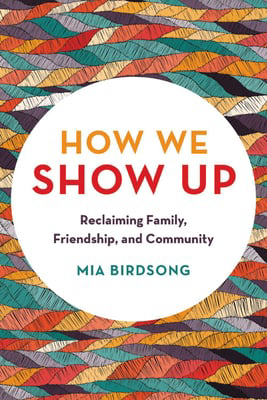
How We Show Up: Reclaiming Family, Friendship, and Community
Mia Birdsong
How We Show Up by Mia Birdsong. That’s a book about community and friendship. It came out during the pandemic. I felt like it was important for me to read, because as I’m re-evaluating everything, I want to also re-evaluate how I show up in the community. One of the most interesting things I took away from that book was that she said that there was a study done by Harvard, where they show how loneliness can be just as deadly as smoking packs of cigarettes a day. It’s detrimental to your health for you to be alone. Changed my life.
It also pushed against and questioned the effectiveness of “cancel culture,” because you can’t cancel out our whole community, so how do we hold them accountable? or ourselves? How do we show up? If I’m thinking I’m going to get canceled, I’m probably not going to show up as my full self, right? So how do we make a safe community? or a brave one? Which is important to the work that I do as a teacher, as a poet, and just as a person. I thought those were really key points to have to take away from this during this time. She did interviews with different people who have small communities where they focus on having grassroots boundaries and essential ways to restore justice and relationships. It was so crazy, because she talked about how there have been people who sit like we’re sitting, and one person has done harm to the other. They walk them through how to apologize and rectify, or restore that relationship, or something within the community that helps to start the journey toward healing. And let’s say we never talk again, but what does restoration look like now? Now that I think about it, honestly, that’s the main theme of a lot of these books. How do they approach these different problems? These are all books about difficult, difficult conversations that they had to have with somebody who did harm or how they had to see themselves after. A lot of these books kind of ask that question, what makes us redeemable? What makes us human? How do we continue to stay connected?

Black Girl, Call Home
Jasmine Mans
The last book, a poetry book, is called Black Girl, Call Home by Jasmine Mans. I’ve always been a huge fan of hers. I became even more of a fan when someone was like, “Your poetry reminds me of hers,” so I became even more obsessed with her.
